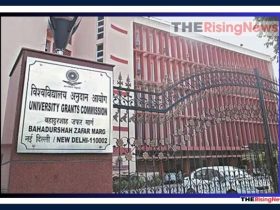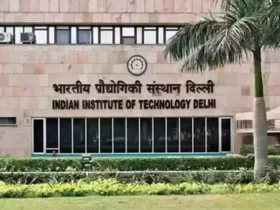NEW DELHI, July 12, 2024 — Delhi University Vice-Chancellor Yogesh Singh emphasized the urgent need for structural reforms in India’s examination system to address the persistent issue of paper leaks in competitive exams. This call comes as the government steps up efforts, including initiating a Central Bureau of Investigation (CBI) inquiry, to tackle the problem and prevent future irregularities.
Delhi University VC Calls for Urgent Structural Reforms
- Delhi University Vice-Chancellor Yogesh Singh stresses the urgent need for structural reforms in the examination system due to recent paper leaks.
- Reforms are crucial to prevent irregularities and ensure the integrity of competitive exams.
- Government actions include a CBI inquiry and recommendations from a seven-member panel.
Paper Leak Crisis: An Urgent Call for Reform
The integrity of competitive examinations in India has come under serious scrutiny following paper leaks in the NEET-UG and UGC-NET exams. These incidents have led to exam cancellations and the establishment of a seven-member panel tasked with proposing necessary reforms. Vice-Chancellor Singh’s statement underscores the critical need for immediate changes to restore credibility and trust in the examination process.
Government’s Response and Investigations
In response to these leaks, the government has ordered a CBI inquiry and formed a panel led by former ISRO chief R. Radhakrishnan. This panel is expected to recommend reforms to enhance data security and prevent future leaks. The National Testing Agency (NTA), responsible for conducting these exams, has faced significant criticism for its handling of the situation.
Important Dates:
- NEET-UG and UGC-NET exams scrutinized for paper leaks.
- CSIR-UGC NET and NEET PG exams cancelled as a precaution.
- July 12, 2024: Statement from Delhi University VC.
- Government’s seven-member panel formed to recommend reforms.
Impact on Students and Academic Calendars
The leakage of examination papers has had a significant effect on numerous students, disrupting academic timetables and causing delays in admissions. The credibility of the exam system is now in question, and the actions taken by the government are deemed critical in resolving these issues.
Facts and Data:
- Multiple exams have been compromised, prompting a CBI inquiry.
- The NTA has been criticized for its response.
- The panel’s recommendations will focus on data security and systemic reforms.
Next Actions and Suggestions
In the coming period, the conclusions of the seven-member panel and the results of the CBI inquiry will influence prospective policies and changes. These steps are crucial to uphold the integrity of the examination system and ensure equal opportunities for every student.
Responses:
-
VC Yogesh Singh conveyed optimism regarding the CBI inquiry’s outcomes.
-
Stressed the importance of taking action against criminal syndicates responsible for paper leaks.
Need for structural reforms Analysis and Context
Vice-Chancellor Singh expressed confidence that the government’s seriousness in addressing the problem will lead to improvements soon. The ongoing CBI inquiry is expected to yield positive results and deter future criminal activities. Singh pointed out that criminal gangs are involved in leaking exam papers, and strict action is necessary to eliminate such elements.
Implications
The paper leak issue has had significant implications for various exams. NEET-UG and UGC-NET exams have been specifically scrutinized for irregularities. Additionally, as a precaution, the CSIR-UGC NET and NEET PG exams were cancelled, causing further disruptions. The National Testing Agency, responsible for conducting these exams, later announced fresh dates for some of these exams.
Seven-Member Panel and Recommendations
To comprehensively address the issue, the government has established a seven-member panel headed by former ISRO chief R. Radhakrishnan. This panel is responsible for providing recommendations on reforms in the examination process, strengthening data security protocols, and evaluating the structure and functions of the NTA.
The NTA oversees the Common University Entrance Test (CUET) for central universities admission, and delays in the release of CUET-UG exam results have had an impact on admissions and academic schedules.
Efforts to combat paper leaks in competitive exams necessitate immediate and sustained action from the government, including structural adjustments and strict measures against those responsible. Restoration of the examination system’s integrity is crucial to ensure equal opportunities for all students.
Collaboration between educational authorities and the government is essential to implement the recommended reforms and bolster security measures to prevent future irregularities.













